Stay Up to Date
Submit your email address to receive the latest industry and Aerospace America news.
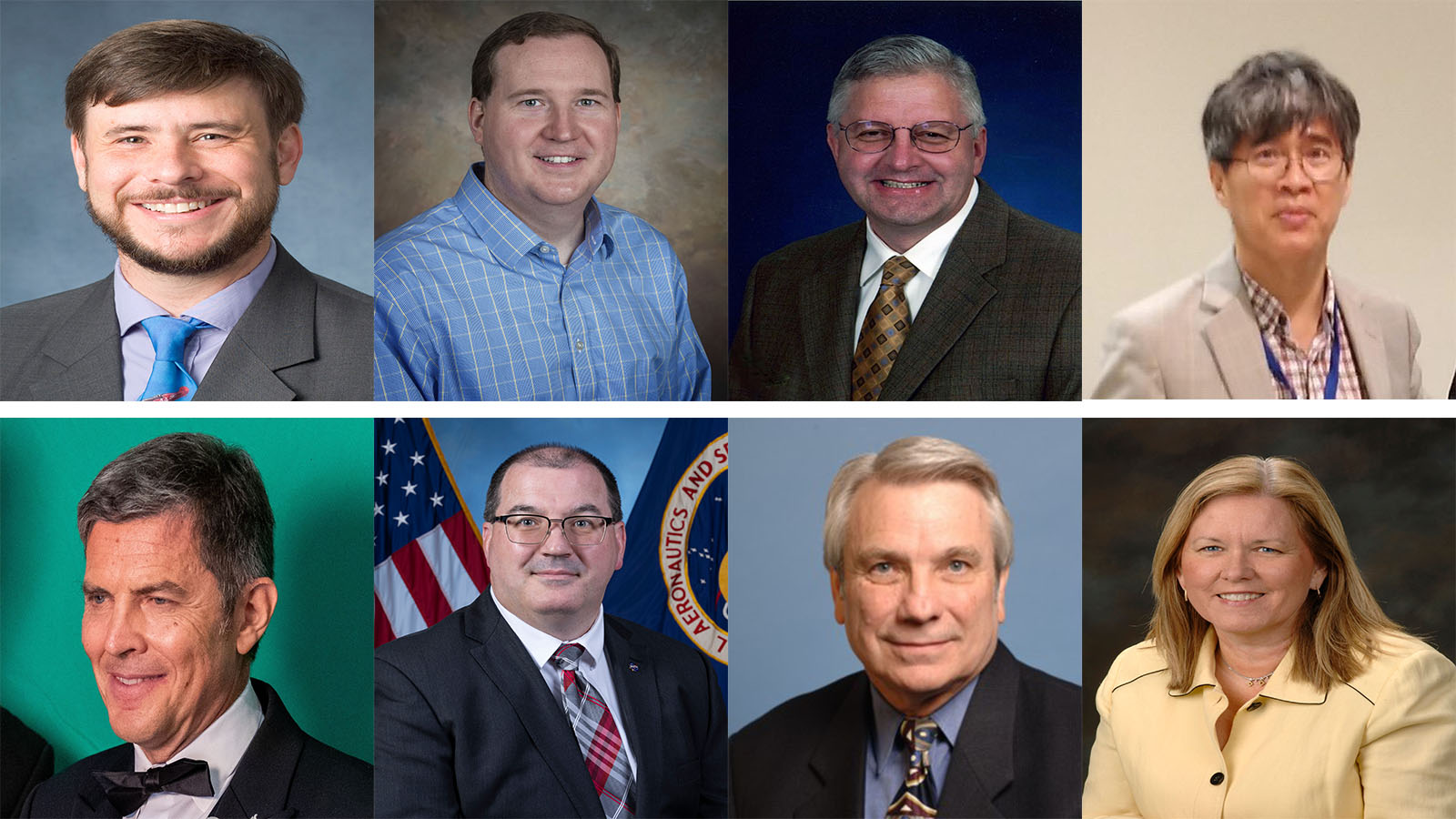
AIAA Announces 2024 Sustained Service Awards Winners
AIAA has announced the winners of the 2024 Sustained Service Awards. The award recognizes “sustained, significant service and contributions to AIAA.” Recipients must be AIAA members who have shown continuing dedication to the interests of the Institute by making significant and sustained contributions. The 2024 winners are:
Ronald M. Barrett-Gonzalez, University of Kansas
For continued support of AIAA in the Wichita Section, as a student branch faculty advisor, and on national technical committees.
Barrett-Gonzalez received B.S. and Ph.D. degrees from the University of Kansas in 1988 and 1993, respectively, and an M.S. from the University of Maryland in 1990 in aerospace engineering. He has authored more than 400 technical publications, holds 19 patents, and is a member of the Aircraft Design and Adaptive Structures TCs. He has served on faculties at Auburn, Alabama, TU Delft, and KU as the AIAA Student Branch Faculty Advisor.
John W. Dankanich, NASA Marshall Space Flight Center
For continued and dedicated service to AIAA and the aerospace community.
Dankanich received undergraduate and graduate degrees from Purdue University in Aeronautical and Astronautical Engineering. He is the Chief Technologist of NASA Marshall Space Flight Center and the NASA agency Capability Lead for In-Space Transportation. He is a subject-matter expert in trajectory optimization, mission architecture design, and propulsion technology development and testing.
Stanley D. Ferguson, The Boeing Company (retired)
For sustained service and support to the AIAA Pacific Northwest Section, national committees, technical meetings, student competitions, and STEM activities. Ferguson retired from Boeing after a 40-year career in aerodynamic design, analysis, aircraft integration, and certification. His contributions resulted in numerous patents and awards. He received his MSE degree from the University of Washington in 1979, and BSAE from West Virginia University in 1973. Ferguson has served AIAA in local section positions, national committees, and is an AIAA Associate Fellow.
Kenneth Lui, Ken’s Consulting
For outstanding volunteer service to the AIAA Los Angeles-Las Vegas Section, demonstrating tireless dedication in organizing conferences, and establishing young professional, student branch, and diversity events.
Lui is Chair of the AIAA LA-LV Section and has been a Council Member since 2015. An AIAA Senior Member, he is also a member of the AIAA Space Settlement TC and the Microgravity and Space Processes TC. He obtained his Ph.D. in Applied Physics from Carnegie Mellon University and worked in institutes such as the University of Alabama, City of Hope, and UCLA. He has been a consultant for several years.
Anastasios S. Lyrintzis, Embry-Riddle Aeronautical University
For over 35 years of sustained AIAA service, including leadership roles on committees, conf.erence organization, and publications
Lyrintzis has done research in aeroacoustics, authoring over 200 papers and advising 22 Ph.D. students. He has been a member and Chair of the AIAA Aeroacoustics TC, a member and Chair of the Aerospace Department Chair Association, and the Higher Education Committee. An AIAA Fellow, Lyrintzis has organized several AIAA conferences and served as an Associate Editor for AIAA Journal.
Kurt A. Polzin, NASA Marshall Space Flight Center
For sustained, significant service and contributions at the local, regional, and national levels of AIAA.
Polzin received his B.S. from Ohio State University and completed his Ph.D. in Mechanical and Aerospace Engineering at Princeton University. He joined NASA Marshall Space Flight Center in 2004, and is presently the Chief Engineer for NASA’s Space Nuclear Propulsion project. Polzin is an AIAA Associate Fellow and recently completed his second three-year term as Director–Region II.
Lawrence W. Stephens, Lockheed Martin Missiles and Fire Control
For many years of impactful leadership and dedicated service to AIAA and its members at the student branch, section, regional, and national levels.
Stephens is Director of Engineering Affordability for Lockheed Martin Missiles and Fire Control. He was previously Director of Systems Engineering and then Chief Engineer for Advanced Programs and Special Programs. His contributions include system development programs in aircraft, space, and missile systems from concept studies through flight demonstrations. Stephens is an Aerospace Engineering graduate of the University of Texas at Arlington and an AIAA Fellow.
Marilee J. Wheaton, The Aerospace Corporation
For sustained contributions to the Economics and the Systems Engineering Technical Committees, for impactful service to the Fellows Selection and Honors and Awards Committees, and for technical leadership of the AIAA SPACE Forum and AIAA SciTech Forum.
Wheaton is a Systems Engineering Fellow at The Aerospace Corporation. She provides technical leadership and building capability to include enterprise systems engineering, digital engineering, systems architecting, and model-based systems engineering. Wheaton is a 2008 AIAA Fellow, and she is also a Fellow and current President of INCOSE, and a SWE Fellow and Life Member.
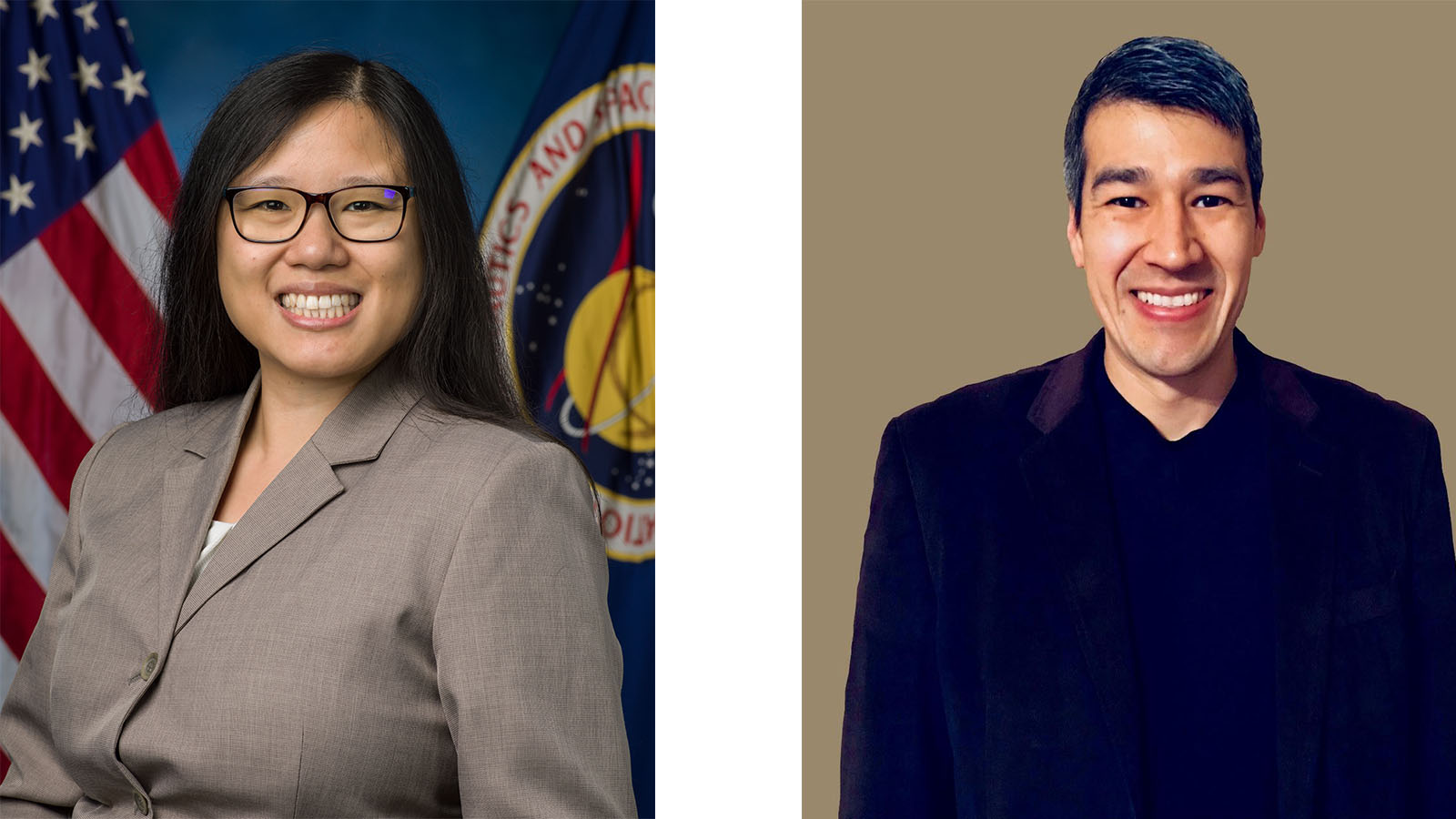
SAT OC’s Strengthened Committee
By: Amir S. Gohardani, SAT OC Chair
The AIAA Society and Aerospace Technology Outreach Committee (SAT OC) has been busy with a variety of new activities and a growing membership. On 16 November, the SAT OC collaborated with AIAA to host the U.S. Aerospace Workforce: Obstacles and Opportunities webinar, which I moderated on behalf of Deloitte along with participation from panelists from NASA, Aerospace Industries Associations, and Stellar Solutions. This webinar was well attended, and it can be viewed on demand by going to aiaa.org/webinars. Also on behalf of the SAT OC, I will serve as the Deputy Technical Program Chair for the Space and Sustainability topic at the 2024 ASCEND in Las Vegas (30 July–1 August).
The sheer strength of this committee comes from its members, and I am delighted to announce that Irene Chan has been confirmed to be the SAT OC Secretary/Treasurer for the 2023–2025 term. Congratulations, Irene! Learn more about her in the SAT OC Spotlight below.
SAT OC Spotlight
Irene Chan is an aerospace advocate, education enthusiast, and webmaster. She received her Bachelor of Science in Aerospace Engineering from the University of California, San Diego, and a Master of Aeronautical Science from Embry-Riddle Aeronautical University with specializations in Human Factors, Education, and Space Operations Management. She has supported the International Space Station Program Office as a web developer, Stowage Engineer, Requirements Engineer, and Flight Planning Engineer. She is transitioning to a flight planning role in NASA’s Moon to Mars program.
As an AIAA Lifetime Senior Member, Chan has served in numerous student branch and section leadership capacities. In the last 13 years, she has led the Houston Section as Chair (2019–2020), Vice Chair – Operations (2017–2019), Webmaster (2012–2020), Councilor (2009–2010, 2013–2014), Secretary (2010–2012), Region IV Student Paper Conference Co-Chair (2010, 2012). You can often find Chan judging a STEAM competition, speaking about her career journey in a K-12 classroom or a virtual school engagement, tabling for NASA at a community STEAM fair, or mentoring students interested in pursuing a STEAM career.
Chan has been a member of the AIAA SAT OC since 2016. As the SAT OC Secretary/Treasurer, she hopes to leverage her gusto for AIAA, her professional and volunteer communication experiences, and her love of STEAM outreach to build on this OC’s strength: fostering society’s appreciation and curiosity for developments in the skies and beyond through different communication mediums and campaigns.
Diversity Corner
Name: Joseph Connolly
Notable Contributions: Connolly is Haudenosaunee (Iroquois) from the Six Nations of the Grand River. Out of the Six Nations comprising the Haudenosaunee, he is Onondaga and of the Wolf Clan. Connolly is the Deputy for Electrified Aircraft Propulsion Integration at NASA Glenn Research Center. He earned his B.S. in Aerospace Engineering and B.A. in Sociology from Ohio State University, his M.S. in Control Systems from Case Western Reserve University, and his Ph.D. in Aerospace Engineering from Ohio State University.
Potential Societal Impact of Contributions: Connolly serves as a technical lead in hybrid electric aircraft propulsion for the Hybrid Electric Thermally Efficient Core Project and the Technology Integration lead for the Electrified Powertrain Flight Demonstration Project. He also chairs the Advisory Group for Native Americans at NASA Glenn and helps with the broader Natives@NASA support group. An AIAA Associate Fellow, he is serving as Chair of the Northern Ohio Section as well as a member of the Guidance, Navigation, and Control Technical Committee. Connolly previously led the Outreach subcommittee of the AIAA Diversity and Inclusion Working Group.
*In collaboration with the AIAA Diversity and Inclusion Working Group and Claudine Phaire, SAT OC is highlighting prominent members of the wider aerospace community in the Diversity Corner.
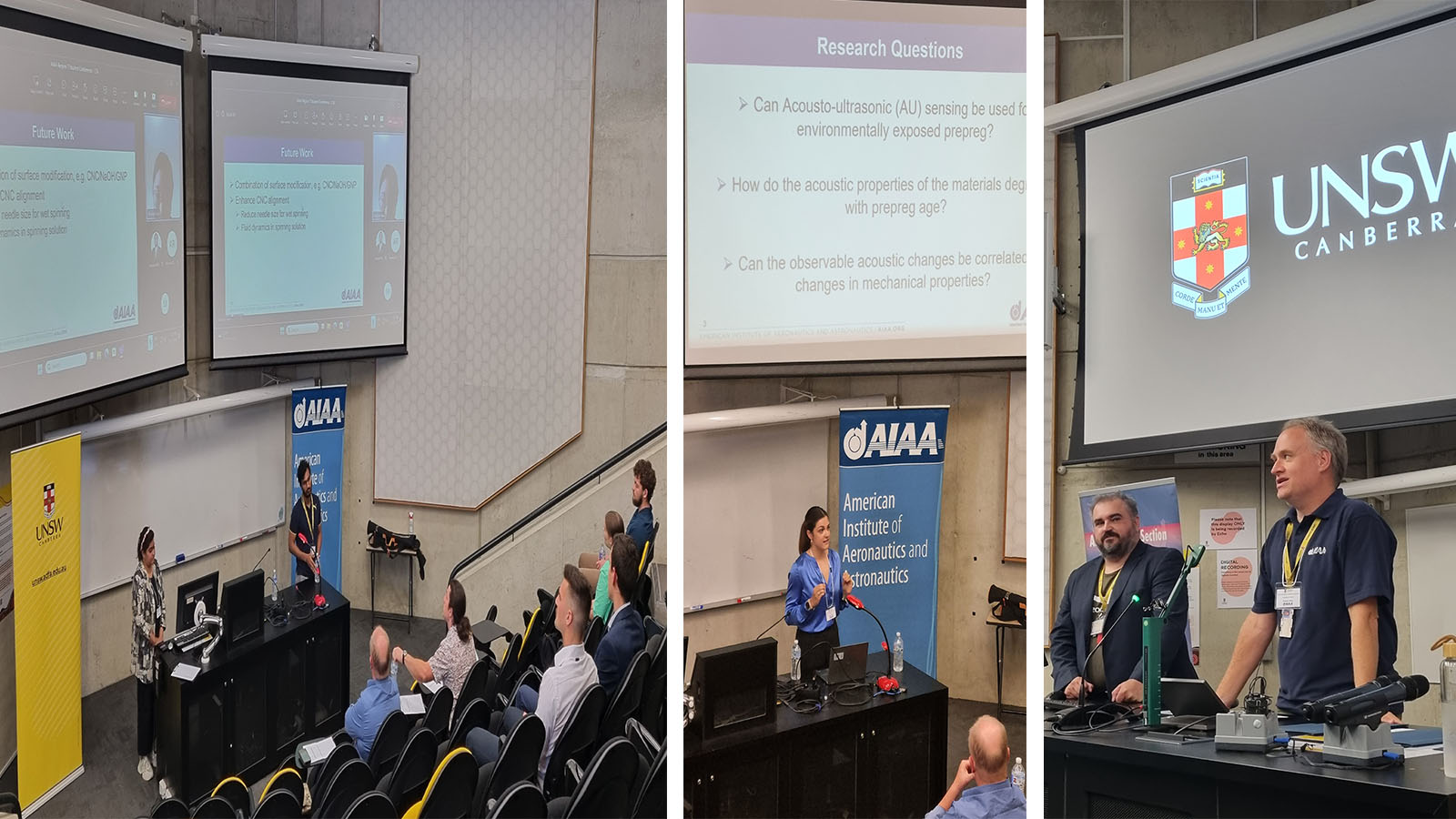
Making an Impact: University of New South Wales Canberra Hosts 2023 AIAA Region VII Student Conference
AIAA is pleased to announce the winners of the 2023 Region VII Student Conference, held 27-28 November 2023, at the University of New South Wales Canberra and online. Attendees presented 39 papers and represented 19 universities from 11 countries, including Australia, Bangladesh, Brazil, India, Saudi Arabia, South Korea, Thailand, Turkey, the United Arab Emirates, the United Kingdom, and the United States of America.
Students presented papers in three categories: undergraduate, masters, and high school. Their presentations were evaluated by experienced aerospace professionals. Additionally, the papers presented by university students will be published by AIAA and available on Aerospace Research Center (ARC) starting in January 2024.
For the undergraduate and masters categories, first-place winners received a cash prize of $500 and an invitation to participate in the International Student Conference at the 2024 AIAA SciTech Forum, 8-12 January. Second-place winners received a cash prize of $300 and third-place received $250. The high school students received $100 for first place, $75 for second place, and $50 for third place.
High School Category
1st Place: Cheney Wu and Nate Osikowicz, Cranbrook Schools, Bloomfield Hills, MI, “Exploration of Tensegrity Applications in Airfoil Designs”
2nd Place: Baldwin Chen, American International School of Dhaka, Bangladesh, “Regression Rates of Non-liquefying Fuels in a Hybrid Rocket Engine at Atmospheric Pressure”
3rd Place: Zhishan Lu, Bard College at Simon’s Rock, Great Barrington, MA, “The Development and Application of Air-launch Technology”
Undergraduate
1st Place: Georgia Warren, University of New South Wales Canberra, Australia, “Development and Testing of a Stereo Photogrammetry System for Multi-Axis Optical Tracking of Free-Flight Models”
2nd Place: Alexandra Stewart and Graham Wild, University of New South Wales Canberra, Australia, “A Historical Analysis of Military Action against Civilian Aircraft”
3rd Place: Johnny Chen and KC Wong, University of Sydney, Australia, “Design of a Span Morphing Wing for a Blended Wing Body UAV”
Masters
1st Place: Jiwon Lee and Youdan Kim, Seoul National University, South Korea, “NMPC-based Control Deign for Transition Flight of Fixed-Wing VTOL UAV”
2nd Place: Lok Yan Poon, University of New South Wales Sydney, Australia, “Renewable Natural Fibre Reinforcement Development”
3rd Place: Bader Ayran and Abdullah Barakat, Istanbul Technical University, Turkey, “Propulsive Landing of a 6DoF Variable Mass Rocket System using Real-Time Nonlinear Model Predictive Control”
AIAA’s student conferences are an opportunity for students to present and publish their work in front or their peers and members of the industry. Each of AIAA’s seven regions host one conference each year. The Regional Student Conferences for Regions I-VI will take place in spring 2024.
AIAA would like to thank Lockheed Martin for supporting the program. Additionally, special thanks to the University of New South Wales Canberra, the Sydney Section, the judges, Professor Graham Wild, Professor Charlie Hok, Tjasa Boh Whiteman, and Region VII Director Cees Bil for coordinating the conference.
Attend the Teacher Workshop at AIAA SciTech Forum
During 2024 AIAA SciTech Forum in Orlando, FL, AIAA invites local educators to attend a professional development workshop where they can experience hands-on learning concepts to take back to their classrooms. Participants will hear from educators and engineers about the emerging aerospace challenges of the 21st century and learn about the incredible opportunities that exist for elementary, middle, and high-school educators to introduce your students to advanced STEM concepts, both through integrated projects and through newly developed standards-based curriculum.
There are additional opportunities for educators to network with colleagues and learn about AIAA’s classroom grant funding and educator recognition programs.
When: Thursday, 11 January 2024, 0800–1400 hrs ET USA | Where: Hyatt Regency Orlando, Florida
To be eligible for this free registration, the attendee must be a K-12 educator (this includes classroom, out-of-school time clubs, active homeschool educators, and museum facilitators). To register for free, sign up here: https://forms.gle/UZDoqSZXGTbLJQ3Z8. Reach out to K-12 Programs Manager Jake Williams at [email protected] with any questions.
AIAA Foundation Day of Giving Makes an Impact
The AIAA Foundation hosted its second annual Day of Giving on 28 November 2023. We are pleased to share that with the help of 68 donors we raised $62,000. The support of our members plays a critical role in the success of our student and educator programs. Thank you to the AIAA community. To donate to the AIAA Foundation, please visit www.aiaa.org/foundation.
AIAA Fellow Reed Died in August 2021
Wilmer (Bill) H. Reed III died on 26 August 2021. He was 95.
After high school Reed enlisted in the U.S. Navy, became a Naval Aviator, and earned his B.S. in Aeronautical Engineering at Auburn. In 1948, he was hired directly by NACA at Langley Research Center as an Aeronautical Research Engineer. He received his M.S. in Aeronautical Engineering from the University of Virginia in 1953.
Reed specialized in aeroelasticity and load analysis, creating engineering solutions that made supersonic flight and space exploration possible and more efficient, by streamlining and redesigning rocket and wing configurations and damping vibration (flutter). He became Chief Scientist at NASA, contributing 28 global patents and publishing 40 scientific articles. His work revolutionized the study of wind tunnel modern flight dynamics, and he received the NASA Exceptional Service Medal and eight NASA Special Achievement Awards.
After retiring from NASA in 1982, he worked as a scientist, consultant, and speaker for Dynamic Engineering Inc., where he invented the “Flutter Exciter,” making commercial and military aircraft more efficient and safer. Reed was then a Representative Engineer for the FAA until his retirement in 1998.
An AIAA Fellow, Reed was recognized with three AIAA Engineer of the Year Awards from 1995 to 1997.
AIAA Associate Fellow Davis Died in September
William Robert (Bob) Davis Jr. died 1 September 2023. He was 76 years old.
Davis earned a B.S. in Engineering from Lehigh University followed by a Masters and Ph.D. in Aeronautic and Astronautic Engineering from MIT. After serving four years in the U.S. Air Force, retiring as a Captain, Davis joined MIT’s Lincoln Laboratory where he enjoyed a 43-year career, retiring in 2020 as Assistant Head of the Engineering Division.

AIAA Member Lingenfelter Died in July
Lieutenant Colonel Andrew J. Lingenfelter, USAF, died on 19 July. He was 37 years old.
Lingenfelter studied at the University of Nebraska in Lincoln on an Air Force ROTC scholarship. After graduating with a degree in mechanical engineering, he started his first job at Eglin Air Force Base as a 2nd Lieutenant, kickstarting an over 14-year career in Air Force Acquisitions.
In 2011, Lingenfelter earned a master’s degree in industrial and systems engineering from the University of Florida. In 2016, he earned a Ph.D. in aeronautical engineering from the Air Force Institute of Technology.
Lingenfelter won several Air Force awards for his research, papers, videos, and athletics. He was based at Wright-Patterson Air Force Base.
He was also the recipient or co-recipient of several best paper awards presented at the AIAA/ASCE/AHS/ASC Structures, Structural Dynamics, and Materials Conference, AIAA Aerospace Sciences Meeting, and AIAA SciTech Forum (2015, 2016, 2018). Lingenfelter had been a member of the AIAA Survivability Technical Committee for six years and served as Secretary (2020–2022) and Vice Chair (2022–2023).
AIAA Associate Fellow Spann Died in September
Richard E. Spann died on 25 September 2023. He was 89 years old.
Spann attended Columbia University where he received both a B.A. in 1956 and a B.S. in Chemical Engineering in 1957. Having been in the ROTC program, he was commissioned a 2nd lieutenant in the U.S. Air Force upon graduation and stationed at Wright-Patterson AFB.
His time in the Air Force was spent helping develop solid rocket fuels for various systems including the Minute Man missile. In 1959 the propellant office was moved to what became known as The Rocket Site at Edwards AFB and he transferred to California.
In 1971, Spann decided to go to law school, enrolling at Loyola Law School in Los Angeles and graduating with a Juris Doctor degree in 1974. After passing the bar exam on the first try, he practiced law in Lancaster until 1989, when he was appointed as a Judge of the Municipal Court of Los Angeles County. In 2001, the state combined the Municipal and Superior Courts so Spann spent the remainder of his judicial career as a Superior Court Judge.
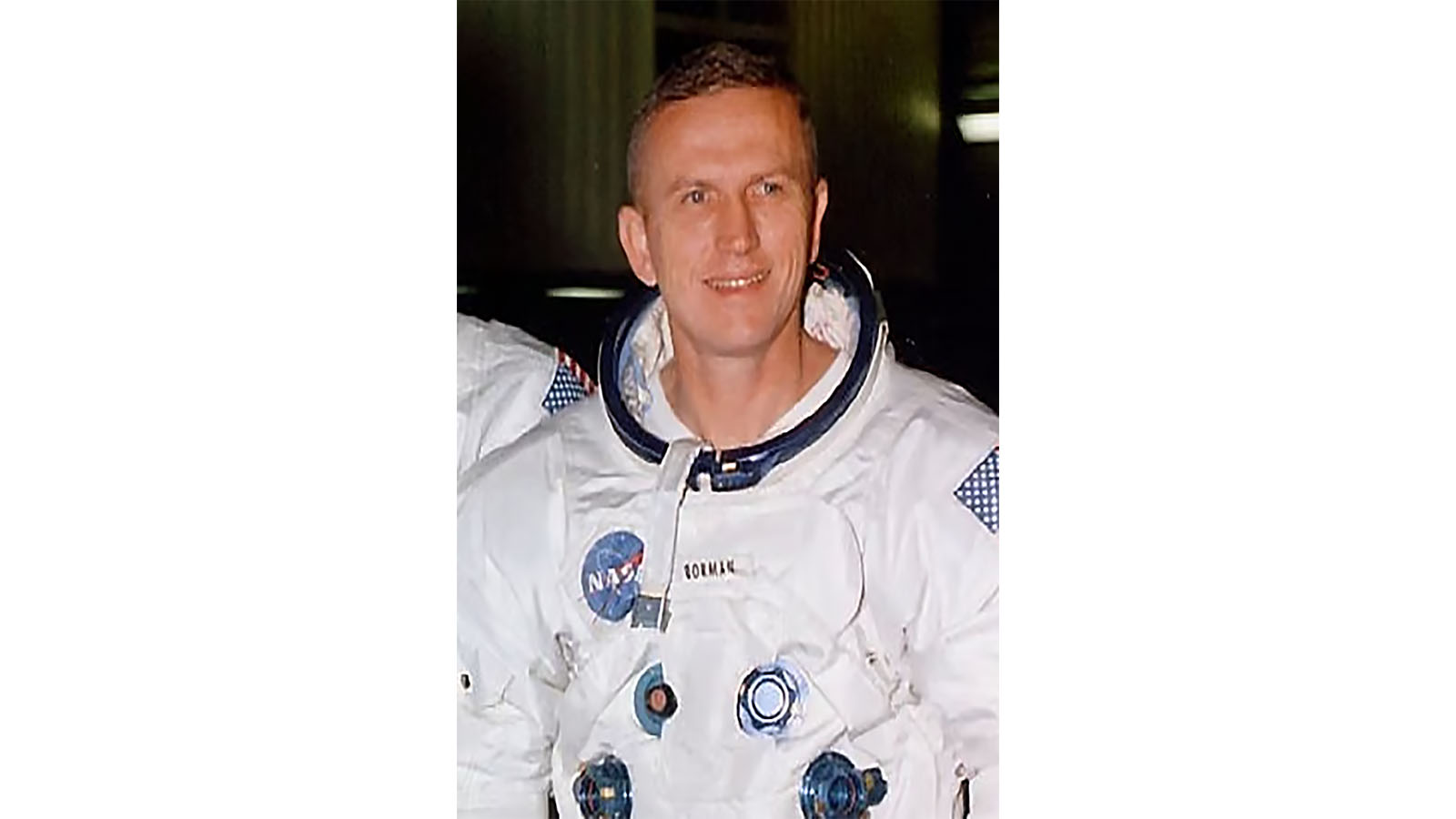
Astronaut and AIAA Fellow Borman Died in November
Frank Borman, commander of NASA’s 1968 Apollo 8 spaceflight, whose astronauts became the first men to orbit the moon, died on 7 November. He was 95.
Borman was fascinated by aviation from a young age, obtaining his pilot’s license at age 15. He graduated from West Point in 1950, and became an Air Force fighter pilot. After receiving a master’s degree in aeronautical engineering from the California Institute of Technology in 1957, he became a test pilot and helped develop spaceflight testing programs for future astronauts at Edwards Air Force Base in California.
He was named to the Gemini group of astronauts, who followed the original Mercury Seven, in September 1962. In December 1965, he commanded the two-man Gemini 7 spacecraft with astronaut Jim Lovell on a 14-day flight. Gemini 7 took part in a pioneering rendezvous 185 miles above Earth when Gemini 6A caught up to it and flew alongside it in orbit. That kind of maneuver had to be perfected in order for a lunar module to descend to the moon from an orbiting command ship and later blast off from the lunar surface, then rendezvous and link up with the mother ship for the trip back to Earth.
After the January 1967 Apollo 1 fire that killed three astronauts, Borman served on the Apollo 204 Fire Investigation Board. He later became the Apollo Program Resident Manager, heading the team that re-engineered the Apollo capsule. He also served as Field Director of NASA’s Space Station Task Force.
The Apollo 8 mission, including Borman (as commander), Lovell, and William A. Anders, was only the second manned flight in the Apollo program. It was also the first manned flight employing the hugely powerful Saturn 5 rocket for liftoff. Apollo 8 carried the three astronauts farther from Earth than anyone had ever traveled. It orbited the lunar surface 10 times, flying nearly 60 miles above its surface, to photograph a bleak and rock-strewn terrain, seeking potential landing spots for the moonwalks to come.
Borman retired from the Air Force and NASA in 1970. He held several positions at Eastern Airlines before being named chairman in 1976. Borman later became chairman of Patlex Corporation, a holder of patents on laser technology, and flew antique planes.
Among his many awards, Borman was the recipient of the 1968 Robert J. Collier Trophy. In 1970, he and William Anders were co-recipients of the AIAA Haley Space Flight Award.
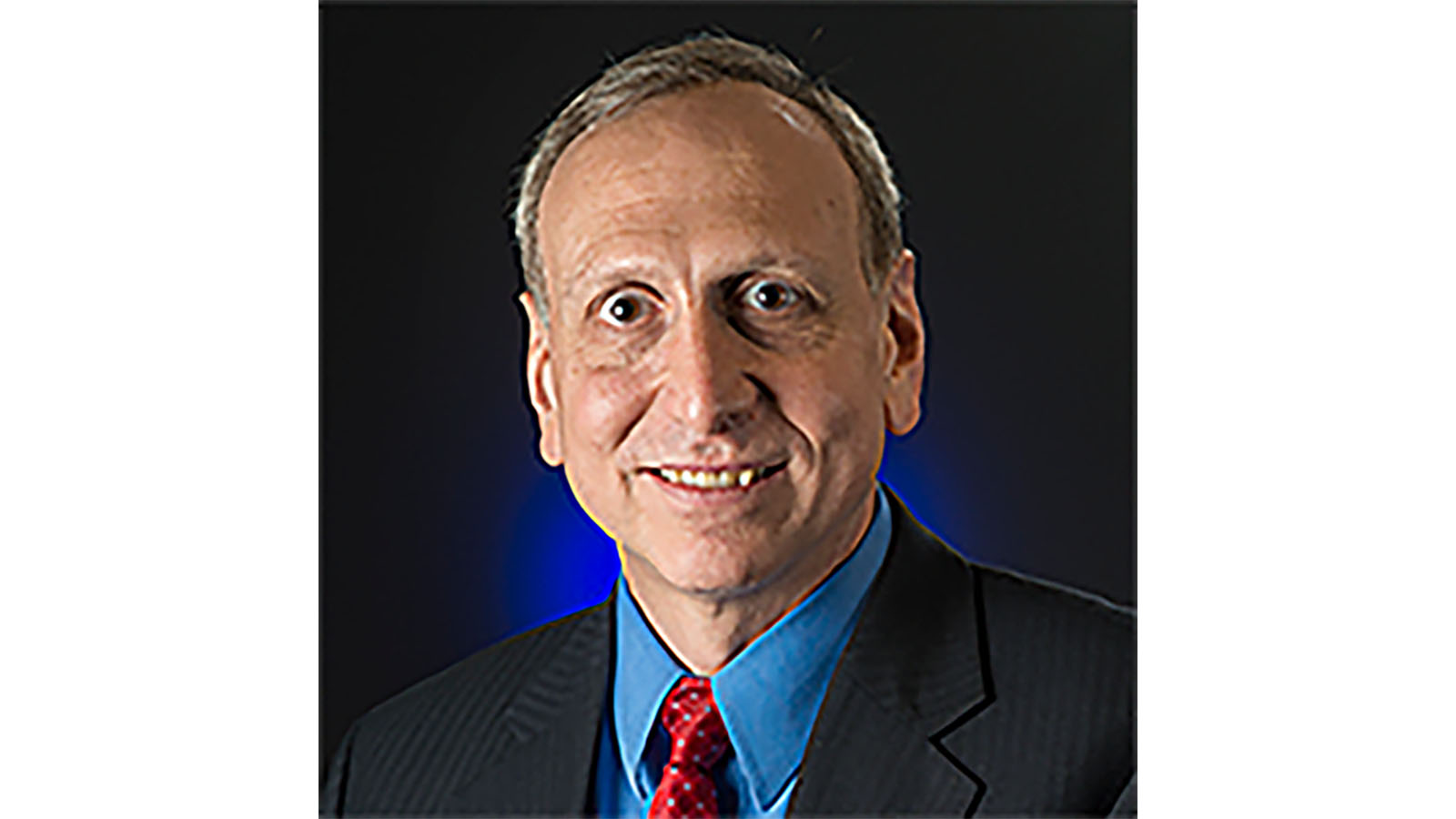
AIAA Associate Fellow Jurczyk Died in November
Steve Jurczyk, former NASA associate administrator, died 23 November. He was 61.
He graduated from the University of Virginia where he received Bachelor of Science and Master of Science degrees in Electrical Engineering in 1984 and 1986, respectively.
Jurczyk joined NASA in 1988 and rose through the ranks at NASA Langley Research Center, becoming center director in 2014. A year later he went to NASA Headquarters as associate administrator for space technology, and in 2018 became associate administrator. In that role, he led NASA’s response to the COVID-19 pandemic in 2020.
He became acting administrator in January 2021 at the start of the Biden administration, serving in that role until the beginning of May, when Bill Nelson was confirmed by the Senate and sworn in as administrator. His brief tenure was highlighted by the successful landing of the Perseverance rover on Mars and the first crew rotation of commercial crew vehicles at the International Space Station as Crew-2 relieved Crew-1.
Jurczyk was the recipient of the NASA Distinguished Service Medal, two Outstanding Leadership Medals, the Presidential Rank Award for Meritorious Executive in 2006, and the Presidential Rank Award for Distinguished Executive in 2016. He was also a 2021 Service to America Medal “Sammies” finalist, one of the highest honors for federal civil servants, in the management excellence category for his leadership during the COVID-19 pandemic.
Jurczyk retired from NASA in May 2021. He became one of the co-founders of Quantum Space, a startup that announced plans in 2022 to develop robotic platforms in cislunar space. He led Quantum Space until June 2023, when he became executive vice president of IBX, a company established by Quantum Space co-founder Kam Ghaffarian whose portfolio includes commercial space station developer Axiom Space and lunar lander company Intuitive Machines.
Stay Up to Date
Submit your email address to receive the latest industry and Aerospace America news.




